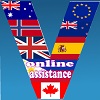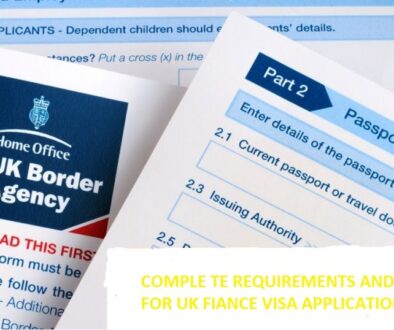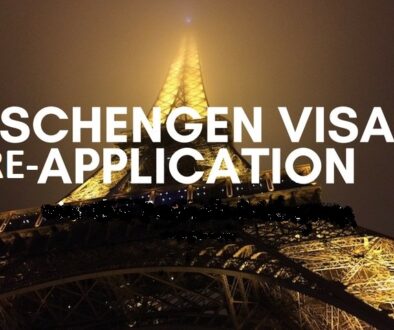10 Tips for a Study Permit with Accompanying Family Member
10 Tips for 2016, regarding a Study Permit in Canada with Accompanying Family Member
Determine the Eligibility of your Accompanying Family Member
 It is our experience when obtaining a study permit to Canada, would have been that uneasy, as our client must meet the criteria of study permit for the visa officer to consider to granting an approval, after their careful review and assessment made in their application. The visa officer, will examine the documents being provided by the client and must satisfied that the applicant is not inadmissible and meets the requirements of the acts – Application before entering Canada, subsection 11 (1), as stated therein (IRPA). The clients around the globe, could also submit application even if they are not physically present in their country of resident, for as long as, they have a legal status in a country, which they are currently staying, before submitting their application to any CIC office nearest to their location, as describes at subsection 11(2) for the place of application to temporary visa, work permit, or study permit in Canada (IRPA). A person seeking an authorization to study in Canada must fill – out the application form(s) as per application package and pay an application fee listed at CIC website and able to provide for a truthful answer in completing the form(s) and or, when the visa officer puts a question or inquiry e.g., interview, or any additional evidence of documents and check the credibility & integrity of the application and comply with a medical examination, as require on with, a study permit criteria and requirements; alongside with the ‘specific visa instructions’, which visa officer would require in their application for examination as describes at subsection 15 (1) (examination by officer), when arriving for a decision for the purpose of subsection 16 (1) of the act.
It is our experience when obtaining a study permit to Canada, would have been that uneasy, as our client must meet the criteria of study permit for the visa officer to consider to granting an approval, after their careful review and assessment made in their application. The visa officer, will examine the documents being provided by the client and must satisfied that the applicant is not inadmissible and meets the requirements of the acts – Application before entering Canada, subsection 11 (1), as stated therein (IRPA). The clients around the globe, could also submit application even if they are not physically present in their country of resident, for as long as, they have a legal status in a country, which they are currently staying, before submitting their application to any CIC office nearest to their location, as describes at subsection 11(2) for the place of application to temporary visa, work permit, or study permit in Canada (IRPA). A person seeking an authorization to study in Canada must fill – out the application form(s) as per application package and pay an application fee listed at CIC website and able to provide for a truthful answer in completing the form(s) and or, when the visa officer puts a question or inquiry e.g., interview, or any additional evidence of documents and check the credibility & integrity of the application and comply with a medical examination, as require on with, a study permit criteria and requirements; alongside with the ‘specific visa instructions’, which visa officer would require in their application for examination as describes at subsection 15 (1) (examination by officer), when arriving for a decision for the purpose of subsection 16 (1) of the act.
Whereas, there are visa instructions per county of nationalities, whereby, the visa office would have a different list of requirements or instructions for the client(s) to comply with, in submitting their application for a study permit and or, with accompanying family member(s). In most cases, visa officer would decide its “decision” based on the information and evidence of requirements supplied by a client seeking to study in Canada. If a client have missed a single ‘evidence of documents or missed certain information on his claim for his application – then, it may militate the decision of the visa officer to arrive a possible refusal! This could have been avoided though, how? Contact us and let us help you with your application – however, it is likely that a refused study permit, may submit a ‘fresh application’, but one must raise it concerns on its first refused study permit application, before making another reapplication to challenge the visa officer.
Accompanying Family Member – Spouse, Common-Law Partner & Children
Quite often, the principal applicant for a study permit who wants to accompany by his/her spouse, common-law partner to Canada, may have more astringent assessment by the visa office, in particular with the accompanying family member, simply because, they will assess the application of the accompanying family member on its individual merits of circumstances, whether you choose to have your spouse or partner apply for an open work permit or a study permit, to accompany you in Canada, while studying.
As we all know, if your spouse or partner cannot demonstrate that (s)he has met the part 9 of the regulations , the likelihood that his application will be refused and received a generic refusal letter from the visa office. Therefore, when submitting an application for a study permit with accompanying spouse or common-law partner, it would be best to analyse and review what are the possible circumstances, if you included accompanying your spouse or partner in Canada. It is not only enough, that you received an acceptance letter or admission letter from a designated learning institution section 219 in Canada, and having the enough funds in line with the financial resources section 220 (a) (b) (c) of (IRPR) for him to qualify for an open work permit or study permit, as we reiterate, the visa officer must be satisfied, to meet the regulations of Division 2 Part 9 of the regulations. It is discouraging though, but that’s a reality, unless there were strong evidentiary documents to supply by your accompanying family member, in a credible level, to rebut of what might the visa officer may reverse the decision to “approval” – but this is really tough one, as it may vary depending on the individual circumstances of your spouse or common- law partner, which will be based on a case to case basis; as a result either your application will be approved (as principal applicant) and your accompanying family member is refused, at any case maybe.
Studying in Canada gives the equitable opportunities for the international students, a part from obtaining a qualification internationally recognized, and soon may eligible to qualify for a Post-Graduation Work Permit. As a holder of study permit, conditions are set forth by the regulations, to continue to meet by the student, that (s) he must continually enrolled at designated learning institution and pursuing his/her course of studies in Canada, given that holder of study permit may work 20 hours per week during academic sessions and full-time work during regularly scheduled break, pursuant to section 186 (v) (iii) of IRPR.
10 Tips to determine if it is worth including your accompanying family member, when applying for a study permit in Canada
- If there’s an adverse immigration history to a previous travel
- If there’s no economic ties to his country of resident or if the ‘income’ and Tenure of employment, would mitigate not to return in his country of nationality upon an authorize stay to Canada
- If family ties ( balance of family )are stronger and greater than that of the other country overseas – as that of your country of resident
- If his ties remains in a country of residents but there were no information and an evidentiary documents, whereby, an applicant provided onto his application
- If (s)he cannot demonstrate a financial status into his application – wherein, visa officer may concluded that the application is made for the purpose of getting an authorization to stay and remain in Canada to work or study
- If (s)he falls into a category of inadmissible in Canada under the acts
- If (s)he applies for study permit and unable to meet the acts and regulationsfor issuing a study permit under division 3 part 12 of the regulations – and no crystal clear pathway to benefit his future career goals in a realistic degree of his claim
- If the funding is insufficient, not credible and not readily available for an accompanying family member for his/her travel to accompany you there in Canada
- If the conditions e.g, for work permit or study permit, are unlikely to be met by your accompanying spouse or common-law partner in Canada
- If accompanying children (minors) does not have a clear purpose of visit (to accompany you in Canada), available funds, or proof of family ties both in country of resident and in Canada, and any travel history – were the principal failed to provide on their application. Though, for minor children they can apply for TRV as per clause (215) (1) (f) of the regulations.
If you want to check your eligibility to apply for a study permit with accompanying family member or seeking an assistance for your application, write us an e-mail and tell us about a bit of your background and any of your accompanying family member, or if you had previously refused to your study permit in Canada.Visa Online Assistance has helped clients from the Philippines, Srilanka, Singapore, Egypt, Uganda, India and Pakistan to name a few, in reapplying and obtaining an approval of their refused application. Contact Visa Online Assistance at info@visaonlineassistance.com for more information.




